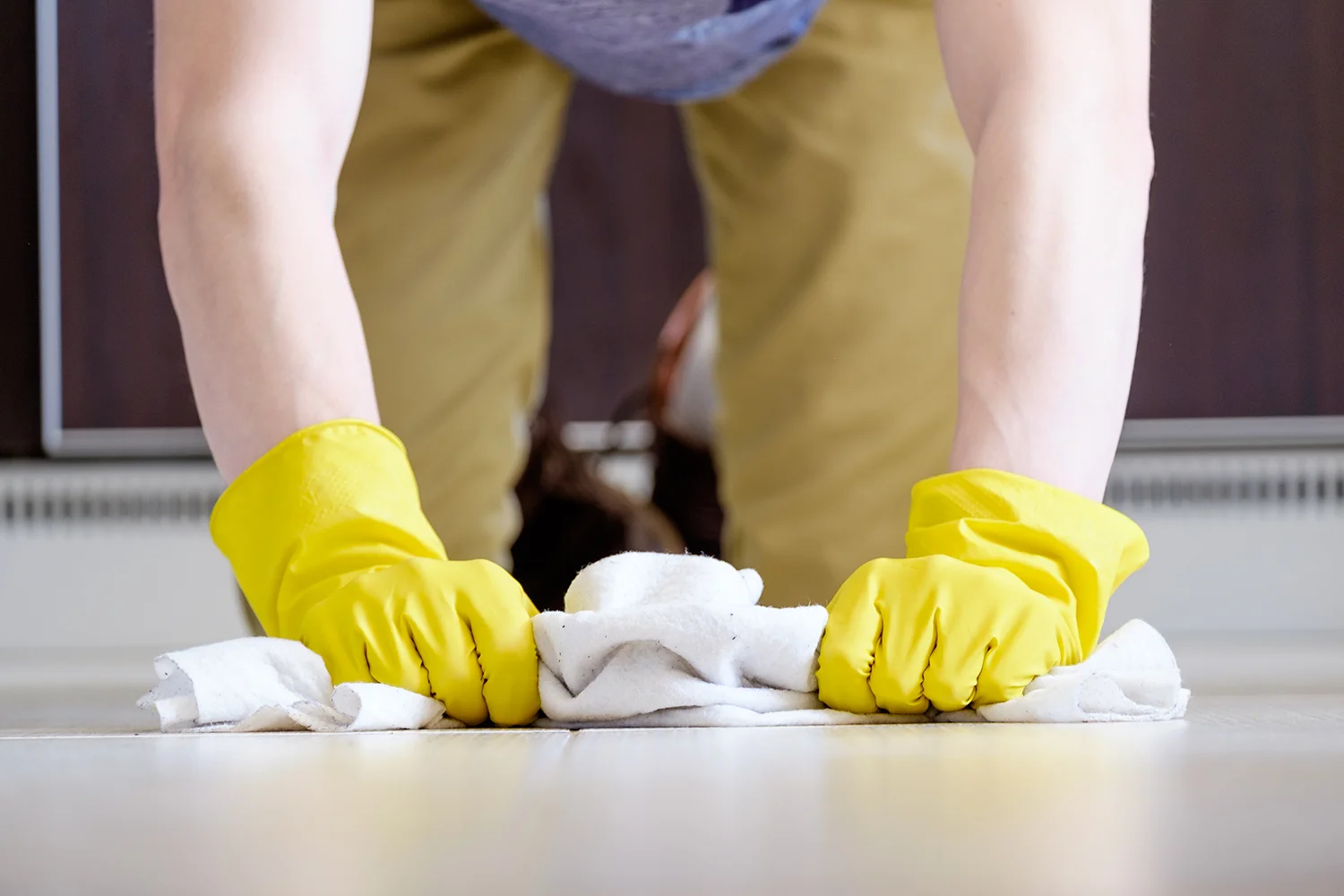Problems of leaking basement are quite common due to the many reasons that may cause it. It is crucial for homeowners to know how to react and what to do in this situation.
If you have water leaking in the basement through cracks in the foundation, or you are still looking for why the floor in your basement is wet, this article is for you. We will describe the reasons for basement water leaks and tell you what preventive measures to take because the consequences of a leak may have an unpredictable effect on the condition of your basement and the whole house.
Causes of Basement Leaking
Leaks in your basement may be caused by atmospheric or ground conditions. Here are some common reasons for this:
- problems with window wells;
- cracks in fundamental wells;
- hydrostatic pressure;
- clogged gutters and downpipes.
Water leakage in the basement may arise due to a malfunction of the technical components of your house, for example:
- leakage of water connections;
- corrosion of the plumbing system;
- breakdown of household appliances;
- Excessive water pressure in the pipes.
Let’s take a closer look at the reasons that cause leaks.
Accumulation of Rainwater and Pooling Around the Foundation
Rainwater may accumulate near the foundation due to:
- incorrect slope of your yard;
- vegetation;
- insufficient drainage system;
- clogged gutters.
Water near the foundation may occur not only due to precipitation but also due to abundant groundwater.
Cracks in or Around Windows and Doors
Diagonal cracks in the corners of window or door openings are usually caused by concrete shrinkage and may lead to water leaking in the basement.
Leaky Plumbing Fixtures
Faulty plumbing is one of the first technical reasons of leaking basement. To detect it, you need equipment, such as thermal imagers or moisture meters.
Inadequate Sump Pump Functionality
If your pump is not powerful enough, it may lead to a bad drain. That is, it will not pump out a volume of water that exceeds its capabilities.
Condensation Issues
Problems with condensation on the internal surfaces of the basement occur due to high humidity, low temperature, and insufficient air circulation inside the room.
Indicators of Basement Leaks
How can you check if you have a leak in a basement wall? There are external signals that are visible to the naked eye and without special equipment.
Pay attention to these signs:
- dampness and brown spots on your walls and ceiling;
- mold and mildew;
- efflorescence (salt crystals);
- rust;
- dirt on carpets;
- water bugs;
- wood deformation;
- cracks and moisture on floors.
Let’s take a closer look at each of the external signs of leakage.
Presence of Dampness or Brown Stains on Walls and Ceilings
Excess water in the basement in the form of condensation drops or drips may damage drywall on the walls and ceiling and lead to brown spots on the surface.
Growth of Mold and Mildew
A damp basement has favorable conditions for the development of mold and mildew. They can appear on walls within 24–48 hours after exposure to water and continue to grow until you eliminate the source of moisture.
Appearance of Efflorescence
Efflorescence occurs as a result of high humidity. In this case, the salt migrates to the surface of the porous material, where it forms a coating. The color of efflorescence varies from white to brown.
Formation of Rust Stains
Condensation or leakage results in traces of rust on various metal surfaces. They can be identified by wet and marking spots (red, yellow, or brown).
Stained Carpets
Wet carpets stained with rust or dirty stains are a common occurrence due to a leaking basement, which is easy to notice by house residents.
The Presence of Water Bugs
A very humid basement environment attracts insects such as water bugs. Favorable conditions for their appearance may arise due to leaking pipes and water on the floor.
Detection of Stained or Warped Wood
If there are wooden elements in the room, their appearance may be greatly damaged due to water leaks in the basement or simply high humidity. The wood may become deformed, darken, and soon begin to rot.
Cracked and Damp Floors
You can check that water is leaking in the basement by simply looking at your floor. The constant presence of water on a concrete floor has negative consequences, such as cracking and destruction of concrete.
What to Do When Your Basement Leaks
If the water leak in the basement is minor and caused by external factors, you may cope with it yourself.
However, to determine the source of the basement leak and eliminate the technical problem, it will be necessary to perform a comprehensive diagnosis using special equipment.
1. Inspect the Entry Point of Water into the Basement
If water leakage in a basement is detected, the point of entry of water into the room should be determined. It is usually caused by cracks in the floor and wall joints, in the area of window wells or plumbing defects. If the entry point cannot be found visually, specialists should be called in.
2. Rectify Grading to Prevent Water Pooling Around the Foundation
Water will not accumulate near the foundation if you reduce the slope. To change the slope of the land, it is filled with soil to a certain level. Thanks to good compaction of the layers, the earth will not sag after rains. It minimizes the risk of foundation leaking in the basement.
3. Assess Gutters and Downspouts for Debris and Leaks
Regular removal of leaves and dirt from gutters is essential to ensure proper drainage. Clean gutters do not create overflow and prevent water from leaking in the basement due to cracks in the foundation.
4. Clean and Secure Window Wells
If the window well does not have good drainage or the drain is clogged, water may accumulate in it. Going through small cracks, a basement water leak appears. Therefore, it is important to install wells correctly and keep them free of leaves, dirt, and debris.
5. Seal Cracks in the Foundation
If there are minor surface cracks or chips on the foundation, apply a masonry sealing compound. It will fill defects and restore structural integrity, minimizing the likelihood of basement flooding.
6. Employ an Interior Waterproofing System to Address Basement Moisture
Waterproofing is a great way to achieve dryness in a room. Epoxy, polyurethane, and cement-based materials are used for this purpose. Serious problems are easier to solve by using epoxy or polyurethane. Cementitious mixtures are a cheaper way to insulate a basement from unwanted moisture.
If you notice a leaking basement, take advantage of our basement waterproofing services Toronto. Professionals will help you detect and fix any problems as soon as possible.
Conclusion
Dealing with the consequences of a leak in a basement is not easy. Not everyone can find its source and eliminate the seepage of moisture through defects in the walls or foundation. Such activities require experience and proper qualifications.
With Quality Age Build, you forget about the troubles associated with humidity in the basement. We take care of reliable waterproofing, which allows you to expand the use of room space.
Do you have a leaky basement? Contact us, and we will solve the problems quickly and professionally.
Contact us
Quality Age Build Inc is at your service across the GTA. Request a quote today and ensure your property is in expert hands.
Related Services
Pair our expert guidance with our waterproofing solutions to eliminate leaks, control moisture, and keep your basement dry and healthy.
FAQs
How can hydrostatic pressure cause basement leaks?
Hydrostatic pressure is the accumulation of groundwater along the foundation and directly under the concrete basement floor. When high pressure is present, water begins to seek an outlet and rises through any existing cracks.
How important is proper grading around the foundation?
Creating the ground slope away from the foundation so that water can drain away from the structure is proper planning. It is essential for the longevity and stability of the house because it helps prevent problems with the foundation.
When should a homeowner consult a professional for the basement leak repair?
My basement leaks! What should I do? If you are looking for an answer to this question because you can’t determine the cause of the problem on your own, you need immediate consultation with specialists.

